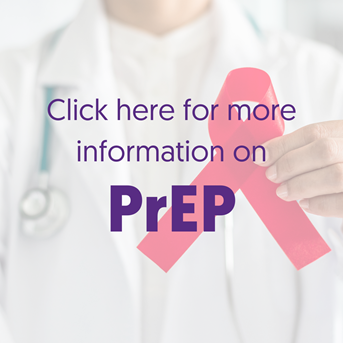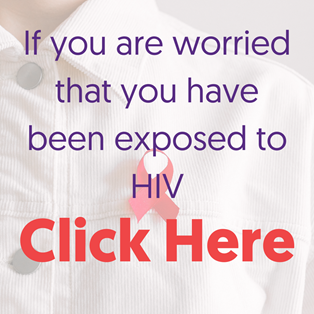Information for Men who have sex with Men
Why am I more at risk of catching HIV or a Sexually Transmitted Infection (STI)?
It’s important to take preventative measures to avoid catching HIV or other STIs during sex as the risk is greater for men who have sex with men than for other people. This is because the lining of the anus is more delicate than the lining of a vagina and it is therefore more at risk of becoming damaged.
Insertive anal sex (topping) is generally a lesser risk for HIV than receptive anal sex (bottoming), but both topping and bottoming during unprotected (condomless) anal sex is considered high risk.
Men who have sex with men made up 45% of new HIV diagnoses in 2017 in the UK. Within Solent Sexual Health men who have sex with men made up 48% of all new HIV diagnoses in 2018.
There have also been increases in the number of Syphilis and Gonorrhoea diagnoses in Hampshire. Both of these can be passed on by condomless sex as well as anal sex.
With PrEP (Pre-exposure prophylaxis) being more easily accessible, some people may be putting themselves at greater risk of catching an STI as PrEP only protects against HIV transmission.
Reducing your risk of catching an STI or HIV
The best way to protect yourself if you're going to have oral or anal sex is use a condom every single time. Although they are not 100% guaranteed, when used properly condoms are extremely effective. Top tips for using condoms.
Condoms come in different sizes and varieties, therefore if you haven’t quite found the right fit or feel, try using alternative sizes, brands and types to see what works best for you. If you are sensitive to latex, try using latex free condoms. Condoms are available free via our Condoms by Post service.
You can also reduce your risk by:
- Using lubrication. We recommend water-based lube, however this can become dry or sticky which makes condom splitting more likely. Keep refreshing it with more lube or a few drops of water during sex. Spit can spread some STIs, so avoid using saliva.
- Reducing the number of sexual partners you have
- Getting tested for STIs before having sex with someone new and advising that they also get tested. If you are having frequent changes in sexual partners then 3 monthly STI testing is recommended.
- Reducing other things that may affect your decisions, such has consuming too much alcohol or taking drugs.
- Getting immunised (vaccinated) against Hepatitis B, Hepatitis A and some types of HPV.
If you use drugs as part of the sex you are having (Chemsex), it’s important to be informed of the risks involved and how to play as safely as possible. Some types of Chems pose a higher risk to you because they can cause longer term health problems such as depression, weight loss and psychological dependence. For more information on playing safely, click here.
HPV Vaccination
Human Papillomavirus (HPV) vaccination is now available in clinic for all men who have sex with men (including Trans people who have sex with men) up to and including 45 years of age. This will help protect you against genital warts and both anal and throat cancer.
If you believe you are eligible for this vaccine, please discuss with your clinician when you next attend for your routine sexual health check-ups.
How often should I attend for a check-up?
- Every 3 months if you are having frequent new or casual partners.
- Every year: All gay, bisexual and other men who are having sex with men are recommended to have a full check-up for sexually transmitted infections including HIV every year, even if you don’t believe you have put yourself at risk.
Your HPV vaccines can be given at your routine check-ups.
Specialist services we can provide to you
Vaccinations:
- Hepatitis A for men
- Hepatitis B for men
- Human Papillomavirus (HPV) for men aged between 15 and 45
We can also support with:
- post exposure prophylaxis for HIV (PEPSE)
- advice and support for pre exposure prophylaxis for HIV (PrEP)
- referrals for support around ChemSex and substance misuse and risk reduction
- STI testing and treatment
Would you like help to reduce your risk?
If you would like to find out about support available or further advice, you can arrange to see one of our health promotion practitioners. Please contact 0300 300 2016 and ask to speak to the Sexual Health Promotion Team or email snhs.sexualhealthpromotion@nhs.net.
Have you been exposed to HIV?
If you are concerned you might have been exposed to HIV (had unprotected sex with someone whose HIV status you do not know, or know to be positive and not on fully suppressed (undetectable) on treatment, or shared injecting equipment), you may be eligible for Post-exposure Prophylaxis.
Undetectable = Untransmittable.
Effective HIV treatment (ART) lets people lead healthy active lives and also protects their partners. When viral load is undetectable on ART, HIV is no longer sexually transmitted - with or without condoms. The evidence for this comes from many studies, including PARTNER and PARTNER 2. More info on U=U available here.
Post-exposure Prophylaxis (PEP or PEPSE) is medication you can take to help reduce the chance of HIV transmission. It is a month-long course of medication that is taken after unprotected sex where there has been a higher risk of exposure. PEP or PEPSE should be taken as soon as possible after sex, and definitely within 72 hours. The earlier it is started the more likely it is to work. You will need to have an assessment with a doctor or nurse before you are prescribed this medication. It is important that you complete the course once you have started it.
If you are worried that you have been exposed to HIV you should attend one of our clinics, or an Accident and Emergency department straight away.
For support on Domestic Abuse & Violence, please visit our directory of services.










